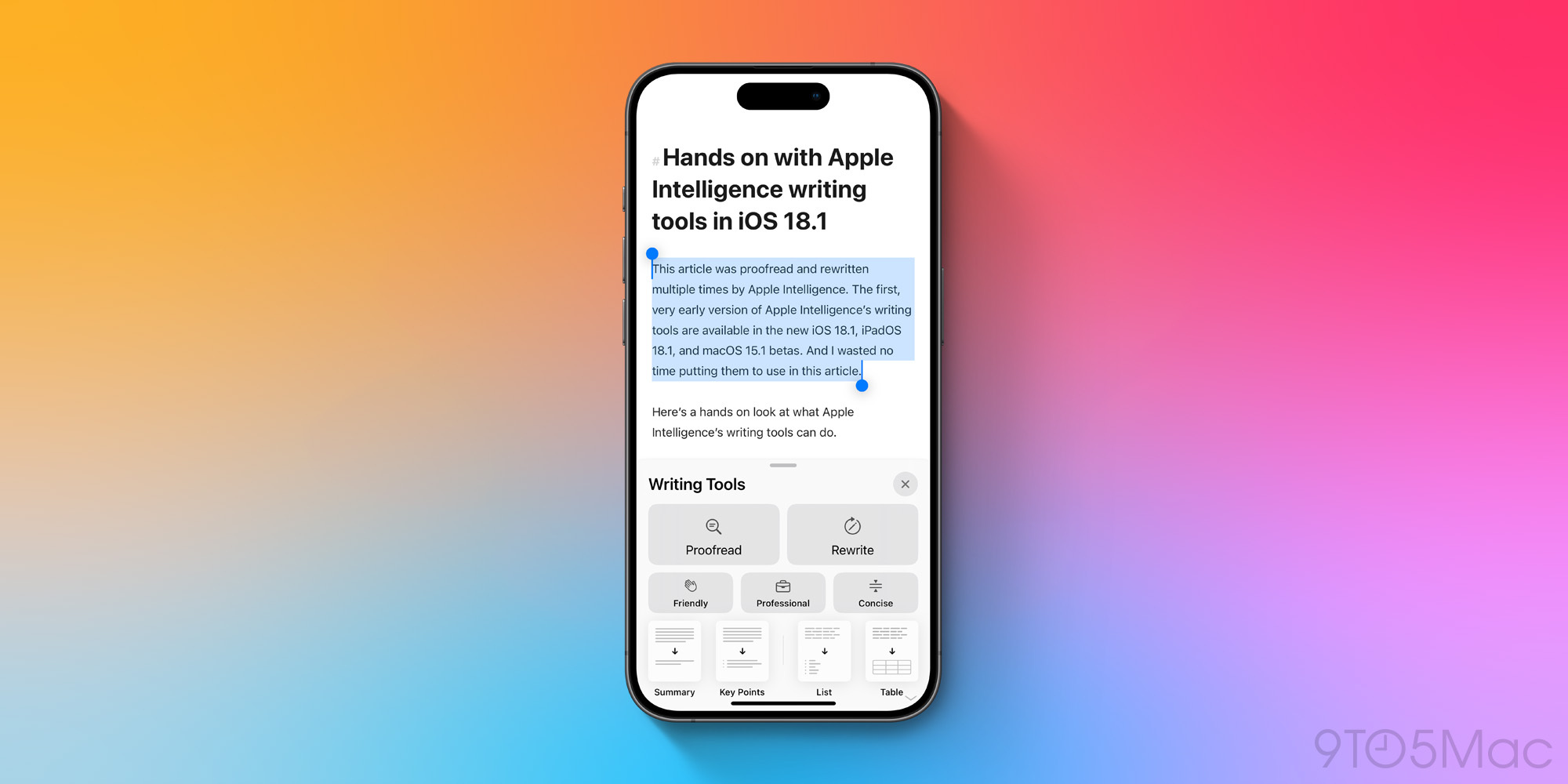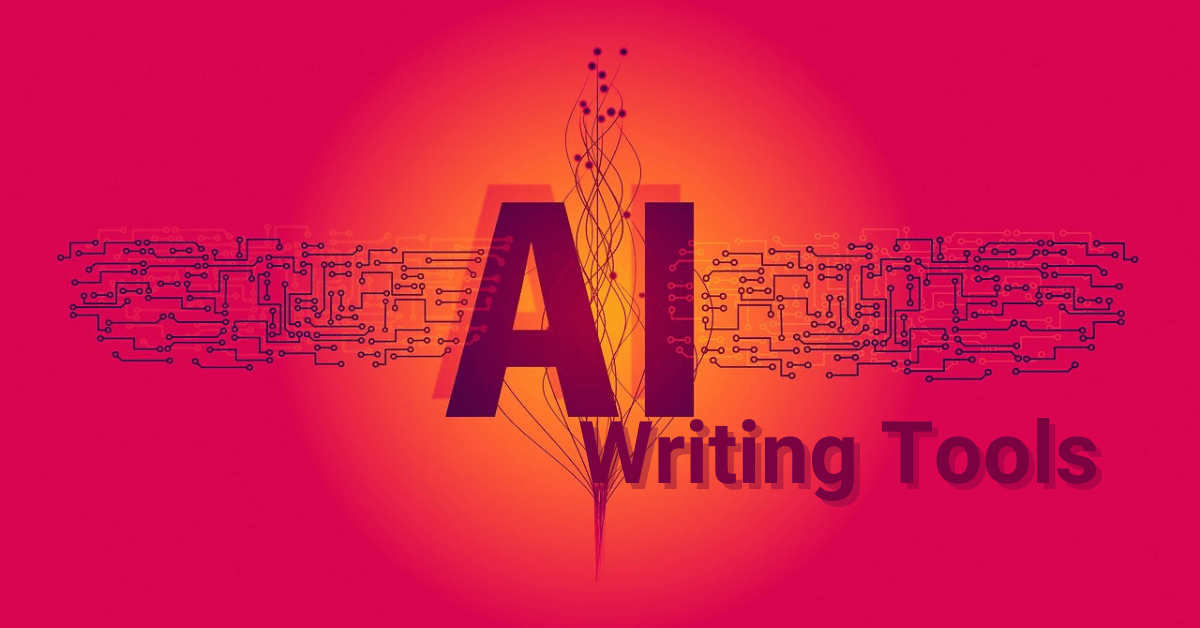
Top 10 AI Writing Tools to Enhance Your Content Creation
- best writing ai tools
- October 29, 2024
- No Comments
In the digital age, writing has transformed dramatically from pen and paper to keyboards and screens. Whether you are a student, a professional writer, or a content creator, the need for efficient and effective writing tools has never been greater. The rise of artificial intelligence (AI) has gifted us an array of innovative solutions that can significantly enhance our writing experience. This article explores some of the top 10 AI writing tools available today, showcasing their unique functionalities and how they can revolutionize your writing process. By understanding these powerful tools, you can elevate your content creation, streamline your workflow, and ultimately become a more proficient writer.
Revolutionizing Writing: Exploring the Best AI Writing Assistants

AI writing assistants have emerged as game-changers in the world of content creation. These tools harness the power of machine learning and natural language processing to improve various aspects of writing, from ideation to proofreading.
Understanding AI Writing Technology
At its core, AI writing technology involves algorithms that analyze vast amounts of text, learning patterns and structures in language. This allows AI tools to generate human-like text, suggest edits, and even optimize content for SEO. As these technologies continue to advance, they are becoming increasingly adept at mimicking human writing styles and tones.
The implications of this technology are profound. Writers can now rely on AI tools not just for grammar checks but also for generating ideas, structuring articles, and enhancing overall readability. This shift is particularly beneficial for those who may struggle with writer’s block or are looking to improve their writing skills.
Understanding AI Writing Technology: Exploring the Top 10 I Writing Tools
When evaluating the top 10 AI writing tools, it’s important to consider their key features:
- Content Generation: Many AI writing tools can produce drafts based on prompts or keywords. This feature is invaluable during brainstorming sessions or when starting from scratch.
- Grammar and Style Checks: Beyond simple spell-checking, advanced AI tools analyze sentence structure, tone, and style, offering suggestions for improvement.
- SEO Optimization: Some tools come equipped with features that help writers create content optimized for search engines, ensuring better visibility online.
- Plagiarism Detection: Maintaining originality is crucial in writing. AI tools can scan texts against millions of sources to check for duplication.
These features make AI writing assistants indispensable for anyone serious about improving their writing craft.
Real-World Applications of AI Writing Tools
From blog posts to academic papers, AI writing tools cater to a variety of writing genres. For instance, marketers benefit from quick content generation for ad campaigns, while students leverage these tools for essay writing and research projects.
Moreover, businesses are integrating AI writing tools into their content strategies to maintain consistent messaging across platforms. The versatility of these tools ensures that they can be tailored to meet diverse writing needs, making them essential companions in any writer’s toolkit.
Boosting Productivity: How AI Writing Tools Can Elevate Your Workflow

Productivity is the lifeblood of successful writers and content creators. In an era where time is often of the essence, leveraging AI writing tools can significantly enhance your efficiency and output.
Streamlining the Writing Process
One of the most significant advantages of using top 10 AI writing tools is the ability to streamline the writing process. Traditional methods often involve extensive research, drafting, and multiple rounds of editing. AI tools can automate many of these tasks, allowing writers to focus on creativity and content quality.
For example, AI-driven tools that assist with idea generation can help overcome mental blocks, offering suggestions that align with your topic. Once a draft is underway, AI editing tools can quickly identify grammatical errors and stylistic issues, saving hours of manual proofreading.
Enhancing Collaboration
In collaborative projects, AI writing tools can foster seamless teamwork. Cloud-based applications allow multiple users to edit and comment on shared documents in real-time. This functionality ensures that feedback is integrated swiftly, resulting in a more cohesive final product.
Additionally, some AI writing tools offer version control, enabling teams to track changes and revert to previous drafts easily. Such features not only enhance productivity but also promote a more organized approach to writing.
Time Management Benefits
With the help of AI writing tools, writers can effectively manage their time. By automating repetitive tasks like formatting and citation management, these tools free up valuable hours that can be redirected toward research and creative thinking.
Furthermore, AI-generated content can serve as a foundation for further development. Writers can build upon these drafts, ensuring that deadlines are met without sacrificing quality. This balance between speed and excellence is essential in today’s fast-paced content landscape.
From Brainstorming to Editing: AI Tools for Every Stage of the Writing Process

Writing is a multifaceted process that typically encompasses several stages, including brainstorming, drafting, revising, and editing. Fortunately, the best AI writing tools are designed to support each of these stages effectively.
Brainstorming and Idea Generation
The initial phase of writing can often be the most daunting. Many writers experience anxiety or frustration when trying to come up with fresh ideas. AI writing tools address this by offering brainstorming capabilities that generate relevant topics, outlines, and even keyword suggestions.
By inputting a few keywords or phrases related to your subject, you can receive a plethora of ideas to explore. This not only saves time but also inspires creativity, leading to richer content outcomes.
Drafting and Structuring Content
Once ideas are gathered, the next step is drafting. AI writing tools can assist in fleshing out those ideas, providing structured paragraphs and transitions that create a logical flow.
Some tools even allow users to set specific tones and styles, tailoring the draft to match the intended audience. This capability is particularly useful for marketers who need to craft compelling copy or academic writers adhering to strict formatting guidelines.
Editing and Refinement
Editing is perhaps the most critical stage in the writing process. While self-editing is essential, relying on AI tools can enhance accuracy and uncover mistakes that might go unnoticed. Advanced AI editors highlight grammar issues, suggest alternative phrasing, and provide insights into the overall readability of the content.
Moreover, certain AI tools come with built-in plagiarism checks, giving writers peace of mind that their work is original and authentic. This comprehensive approach to editing ensures that the final product meets both personal standards and industry requirements.
Choosing the Right AI Writing Tool: Factors to Consider for Your Needs
With so many options available in the market, selecting the right AI writing tool can feel overwhelming. It’s essential to evaluate your specific needs and preferences before making a decision.
Assessing Your Writing Goals
Before diving into the world of AI writing tools, take a moment to reflect on your writing goals. Are you primarily focused on content generation, or do you require extensive editing capabilities? Identifying your primary objectives will guide you toward the tools that are best suited for your situation.
For instance, if you seek assistance with creative writing, you may favor tools that specialize in narrative construction and style guidance. Conversely, professionals in marketing may prioritize tools that excel in SEO optimization and copywriting.
User Interface and Experience
The user interface plays a vital role in how effectively you can utilize an AI writing tool. A clean, intuitive interface simplifies navigation, allowing you to focus on your writing rather than getting bogged down in technicalities.
Take advantage of free trials or demos to assess whether the tool’s design aligns with your workflow. Additionally, consider the availability of customer support resources—helpful documentation and responsive support teams can be invaluable when issues arise.
Integration Capabilities
Another factor to consider is how well the AI writing tool integrates with other applications you use. Seamless integration with word processors, email clients, and project management tools can streamline your writing process even further.
Look for tools that offer compatibility with popular software such as Google Docs, Microsoft Word, and Trello. This connectivity can ensure a smoother transition between different stages of the writing process.

The Future of Writing: AI’s Role in Content Generation and Editing
As technology continues to evolve, the role of AI in writing is set to expand even further. The future promises exciting developments that could reshape the way we create and consume content.
Advancements in Natural Language Processing
Natural language processing (NLP) is at the forefront of AI writing technology. Future advancements in NLP will enhance AI’s ability to understand context, tone, and subtleties within language.
Imagine writing tools that can engage in real-time conversations, providing suggestions based on nuanced understanding rather than mere keyword recognition. This level of sophistication will lead to more personalized and context-aware writing assistance.
Ethical Considerations and Challenges
With great power comes great responsibility. As AI becomes more integrated into writing, ethical considerations surrounding content authenticity and authorship will need to be addressed.
Writers must grapple with questions about originality and the impact of automated content generation on creative professions. Striking a balance between utilizing AI for efficiency and maintaining the integrity of the writing craft will be imperative.
Evolving Roles for Human Writers
Despite the advancements in AI technology, the importance of human writers cannot be overstated. While AI can generate content quickly, it lacks the emotional depth, creativity, and cultural understanding that human writers bring to their work.
In the future, we may see a shift toward collaboration between AI tools and human writers, where AI handles routine tasks while writers infuse their unique voices and perspectives into the content. This partnership can lead to richer, more diverse storytelling that resonates with audiences on a deeper level.

Unlocking Creativity with AI: Exploring the Benefits of AI Writing Tools
Creativity is often seen as a uniquely human trait, yet AI writing tools are increasingly proving that they can complement and even enhance creative processes.
Breaking Down Creative Barriers
Many writers face barriers to creativity, whether it’s fear of judgment, perfectionism, or simply feeling overwhelmed. AI tools can help alleviate some of this pressure by providing a non-judgmental space for exploration.
For instance, generative tools can inspire new ideas or concepts that a writer may not have considered. By experimenting with different prompts, writers can access a broader range of possibilities and break through creative blocks.
Cultivating Unique Voices
While AI writing tools can generate text, their real strength lies in supporting writers in developing their unique voices. Features that suggest synonyms or alternative phrasings encourage writers to experiment with language, discovering styles that resonate with their personal tastes.
Through iterative writing processes facilitated by AI, authors can refine their voices while benefiting from the suggestions provided. This duality enhances creativity while retaining individual expression in the writing.
Fostering Experimentation
AI writing tools can serve as playgrounds for experimentation. Writers can test different approaches, tones, or formats without the fear of messing up a first draft. This playful exploration can yield surprising results, leading to innovative content that captivates audiences.
Moreover, the data-driven insights offered by AI can inform writers’ decisions, helping them understand what works and what doesn’t in terms of engagement and readability. This knowledge empowers writers to take informed risks in their writing journeys.

Mastering AI Writing Tools: Tips and Tricks for Effective Usage
To fully harness the potential of AI writing tools, it’s essential to master their functionalities. Here are some tips and tricks to maximize your effectiveness.
Familiarize Yourself with the Features
Every AI writing tool comes with its own set of features and capabilities. Take the time to explore the various functions offered, whether it’s content generation, editing, or formatting.
Read user guides, watch tutorials, and participate in webinars to deepen your understanding. The more familiar you are with the tool, the more effectively you can integrate it into your writing process.
Set Specific Goals for Each Writing Session
Approach each writing session with clear objectives in mind. Determine whether you want to brainstorm ideas, draft content, or edit existing work. Setting goals will help you use the AI tool strategically, leading to more productive sessions.
For example, if your goal is to generate a blog post outline, focus solely on that task without getting sidetracked by editing or other distractions. This targeted approach fosters efficiency and clarity in your writing.
Combine AI Tools for Comprehensive Support
Don’t hesitate to combine multiple AI writing tools to achieve comprehensive support throughout the writing process. For instance, you might use one tool for content generation while employing another for editing and proofreading.
By leveraging the strengths of different tools, you can create a robust writing workflow that addresses various aspects of your writing needs. This combination enhances both quality and ease in your content creation.

Overcoming Challenges: Addressing Concerns about AI Writing Tools
Despite the numerous benefits of AI writing tools, there are valid concerns regarding their use. Addressing these challenges is crucial for fostering a positive relationship between writers and technology.
Ensuring Authenticity and Originality
One of the primary concerns surrounding AI writing tools is the potential for generating content that lacks authenticity. Writers must remain vigilant, ensuring that the final product reflects their unique voice and perspective.
To combat this, approach AI-generated content as a foundation rather than a finished product. Use the generated text as inspiration, adding your insights and experiences to infuse originality into the work.
Managing Dependency on Technology
Another challenge is the risk of becoming overly reliant on AI tools. While these tools are invaluable, it’s essential to maintain your writing skills and instincts.
Set boundaries around the use of AI tools, dedicating time for unassisted writing. This practice encourages growth and helps writers retain their creative abilities despite the assistance of technology.
Navigating Ethical Considerations
Ethical concerns abound in discussions about AI writing tools, particularly regarding ownership and attribution. Writers should be transparent about their use of AI assistance and ensure that they adhere to ethical standards in their work.
Establishing guidelines for using AI-generated content, whether for personal projects or professional settings, reinforces ethical practices within the writing community.
AI Writing Tools: A Comprehensive Guide for Writers and Content Creators
Arming yourself with knowledge about AI writing tools can significantly boost your writing prowess. Our comprehensive guide aims to encapsulate key information that writers and content creators need to navigate this evolving landscape confidently.
Popular AI Writing Tools
Explore some of the top 10 AI writing tools that stand out in the market today:
- Grammarly: Renowned for its grammar checking and style recommendations, Grammarly is invaluable for writers seeking to enhance clarity and precision.
- Jasper: A powerful content generation tool, Jasper creates high-quality written content from simple prompts, making it ideal for marketers and bloggers alike.
- ProWritingAid: This tool focuses on improving writing style, grammar, and readability, offering detailed reports to help writers refine their skills.
- Copy.ai: Tailored for marketers, Copy.ai generates captivating ad copy, social media posts, and more, streamlining the creative process.
- DeepAI Text Generator: Harnessing deep learning, this tool generates text based on user-defined parameters, offering a unique approach to content creation.
Evaluating AI Tools Effectively
When evaluating AI writing tools, consider conducting thorough research. Read user reviews, compare features, and explore trial versions to find the right fit for your writing needs.
Engaging with online communities and forums can provide valuable insights and recommendations from fellow writers who have firsthand experience with various tools.
Staying Updated on Emerging Tools and Trends
The field of AI writing tools is dynamic, with new entrants and technological advancements emerging regularly. To stay at the forefront of innovation, keep abreast of trends, attend webinars, and subscribe to newsletters that cover AI developments in writing.
Staying informed will empower you to adapt your writing strategies and embrace new tools as they become available, enriching your content creation journey.
“Curious to learn more? Be sure to read our related article for additional insights into Best Tools For Image Generation. Plus, explore our latest blog post for fresh perspectives on [Topic]. Start exploring now!”

Conclusion
The advent of AI writing tools marks a pivotal moment in the evolution of content creation. As explored in this comprehensive guide, these tools are transforming the writing landscape, enhancing productivity, creativity, and collaboration. With the top 10 AI writing tools at your disposal, you can navigate the complexities of writing with newfound confidence and efficiency.
By embracing these innovations thoughtfully and ethically, you can elevate your writing practice and harness the true potential of AI as a collaborative partner. The future of writing is bright, and with the right tools, you are poised to make your mark in the world of content creation.
Looking to learn more? Dive into our related article for in-depth insights into the Best Tools For Image Generation. Plus, discover more in our latest blog post on AI Chatbot Software . Keep exploring with us!
Related Tools:
Image Generation Tools
Video Generators
Productivity Tools
Design Generation Tools
Music Generation Tools
For more AI tools, explore all categories by clicking here.
